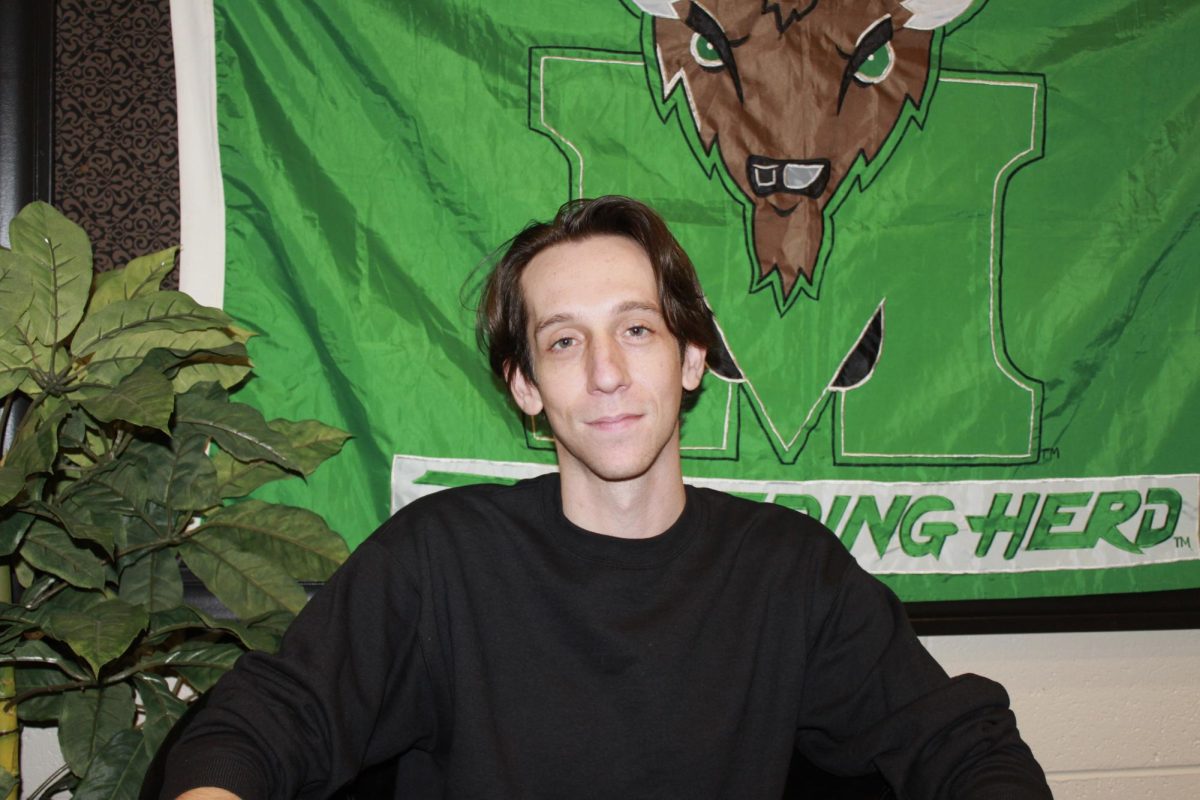Keith Morehouse revisits childhood loss
November 14, 2014
Keith Morehouse was just 9 years old when he lost his father, Greg Morehouse, in the plane crash of 1970. Whilethe crash left him with memories that others would refuse to share, Morehouse has remained open for decades about the incident that occurred 44 years ago. A former broadcast journalism major, he told his story through his own words in a 1980 edition of The Parthenon. Thirty-four years later, Morehouse shared his story with The Parthenon once again.
What was it like to experience the crash, as well as your loss, at such a young age?
It was one of those days you don’t really forget. When you’re 9 years old, you don’t process it all. You do know that, that night, there was big deal going on.
What do you remember most from the night of the plane crash?
I remember my mother’s reaction — going to the phones, having friends calling, just trying to figure out what happened, whether anyone was left. We found out quickly that there was not. As a 9 year old, you don’t really understand what’s going on in a situation like that. The most personal part is that, I just knew I lost my father. Your dad is your hero. I miss him, and still do.
Why did you decide to write an article on such a personal, and emotional, subject during your work with The Parthenon?
That was 10 years after the crash, one of the anniversaries people pay particular attention to. I was working for The Parthenon then, and I think when you’re that age, you have a tendency to put your feelings out there. Since I was working for the school paper at the time, I probably decided, hey, let’s put something down on paper and see if it makes sense.”
How did people react to the article you published about your father?
I think people are appreciative when you put your thoughts down on such a topic. My biggest thing I’ve always talked about is that this isn’t just one person’s story, but that there are so many people who have been affected by the tragedy. If you can shine a little bit of light on one particular situation, and multiply that to the dozens of families who were affected, I think it just makes sense.
How do you feel your father has impacted you, even after his passing?
My dad was 48 years old when he died, and I’m older than that now. I always felt like he didn’t really get the chance to finish his life’s work, so I think I gravitated into this profession because of that, and I’m glad I did.
For how long have you attended the ceremony at Marshall?
I don’t know that I’ve missed one since they’ve started. They began two years after the crash, and mom used to take us. My wife and kids and I go every year, and it’s just something that you do. It’s fantastic that the school recognizes it, and still honors those 75 people. It’s not an easy day, but if they can take the time to remember, we certainly can be there.
What is the turn-out for the fountain ceremony now, in comparison to those held in the few short years after the crash?
I think it’s amazing to see how many students turn out, and kids that weren’t even born then, obviously. It’s a tremendous statement by those kids now that are at Marshall, to really sit back and think about something that happened before they were even alive. It’s a part of Huntington, it’s a part of Marshall, and it’s a part of the community.
Haley Wade can be contacted at wade68@marshall. edu.















Jerry D McConkey • Mar 17, 2020 at 11:24 pm
I have got the DVD of the movie We Are Marshall. I saw the movie at the theater before I bought the DVDs. I watch the movie frequently its a very good but powerful movie. I have always liked the University of Marshall. But one of these times soon, I am going to the services when the fountain is turned off. I now live in Summerville, S.C.
So I don’t live that extremely far away from Huntington.